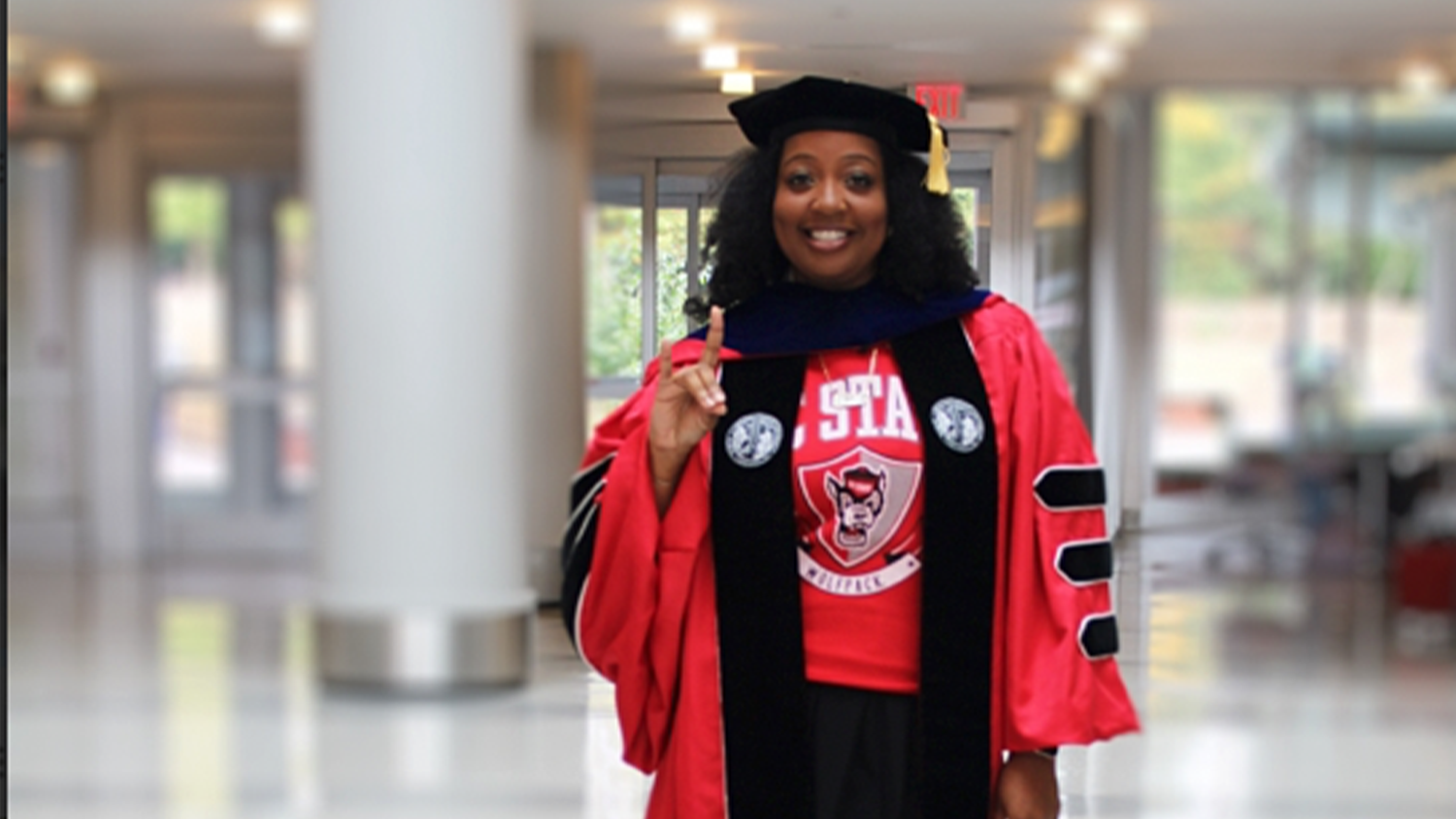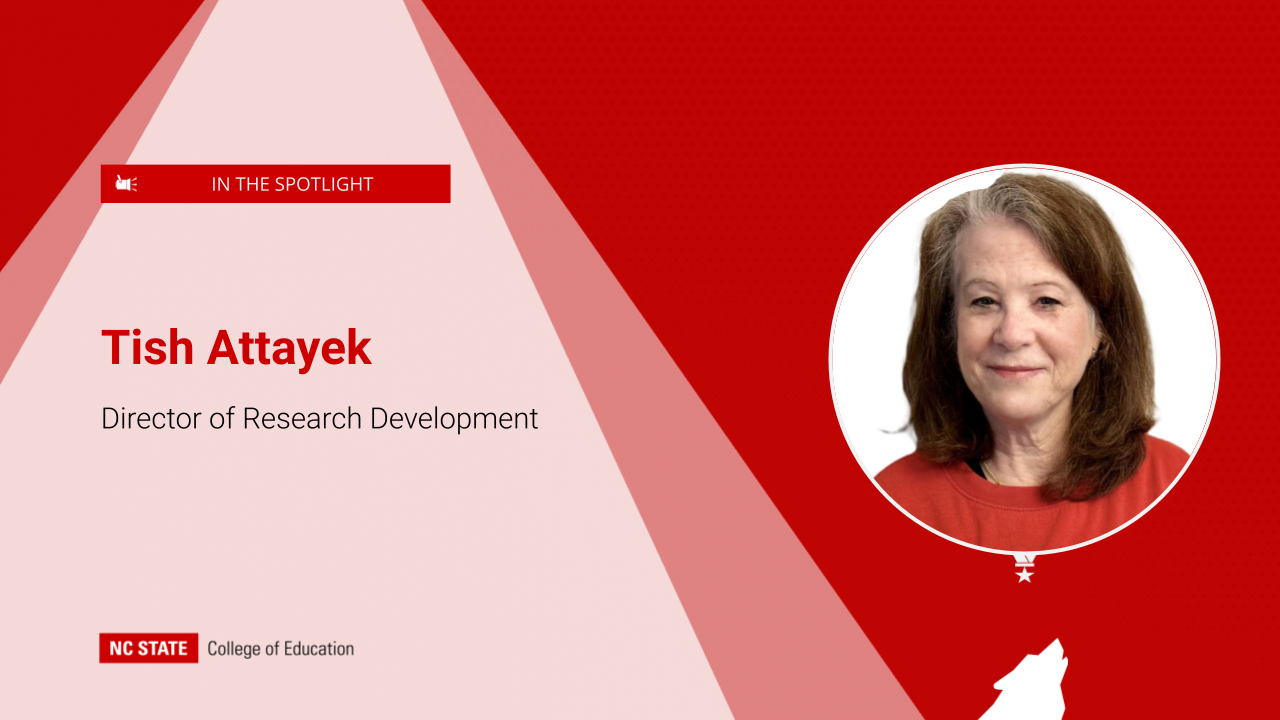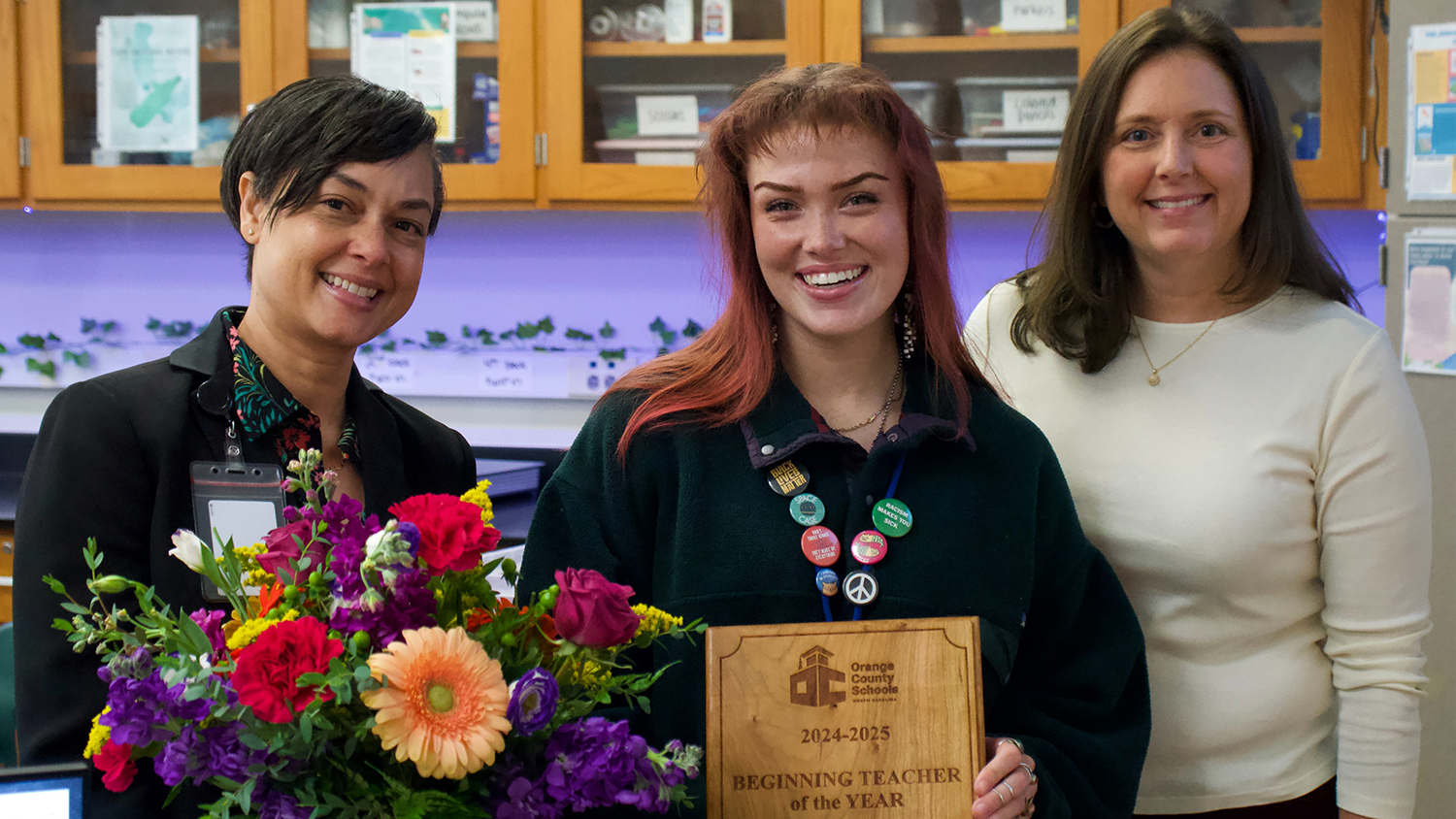Kia Allah ’24PHD: ‘I Have Always Felt That Educators Should Consider Deeply How Each of Our Students Learn to Interact with the World’

While working as a middle school Spanish teacher, Kia Allah ’24PHD noticed a space where her students could have a voice and sense of pride and self-advocacy. It was through this work that she met Associate Professor of Educational Psychology and Equity DeLeon Gray and learned about the NC State College of Education’s Ph.D. in Teacher Education and Learning Sciences educational equity concentration. Now, as she prepares to graduate with her doctoral degree, she reflects on the ways her interactions with Gray, and other College of Education faculty and experiences, have helped shape her into an educational researcher.
Meet Kia:
Hometown: Poughkeepsie, NY
Degree: Ph.D. in Teacher Education and Learning Sciences with a concentration in educational equity
Why did you choose education?
My professional path began as a Spanish teacher in the urban school districts of Richmond, Virginia, and Durham, North Carolina. It was in these settings that I witnessed the critical need for students, particularly Black and Latine youth, to see themselves reflected in their learning environments and to feel valued for their unique cultural contributions. I recognized early on that creating a sense of belonging and identity affirmation was not just beneficial but essential to fostering students’ academic and social success.
Why did you choose the NC State College of Education?
As a teacher, I saw what I felt was a lack of voice, pride and self-advocacy for my Black and Latine students, so I created the Black and Latino Student Alliance (B.A.L.S.A.) at Neal Middle School in 2015. While doing this work, I had the opportunity to meet Dr. DeLeon Gray. I was inspired by his work in the field on the relationship between belonging and student motivation for Black communities within schools. When I learned that NC State was launching a new Ph.D. program in educational equity, I decided to ask Dr. Gray about it, and he spoke highly of the faculty in Teacher Education and Learning Sciences and the College of Education as a whole.
Tell us about an experience you had with the College of Education that had the biggest impact on you or your career.
When I first met Dr. DeLeon Gray, I didn’t know much about research on school belonging, how to conduct qualitative research, how to conduct community-engaged research, what it meant to position myself as a resource for communities or the ways in which my work can make real impact in the lives of students and schools beyond being a classroom teacher. I will forever be grateful for the relationships with kids and adults that I was able to form through this doctoral program and through Dr. Gray’s Black & Belonging collaborative.
What’s next for you?
I plan on continuing in my current position as the director of youth equity programming at Black & Belonging, a collective of equity-focused scholars and young thinkers who work to transform schools into places where youth want to be.
What do you eventually hope to accomplish in your field?
As I continue to collaborate with educators, school leaders and policymakers to design and implement strategies that honor the diverse cultural assets that students bring to the classroom, I hope to continue shifting the narrative away from deficit-based perspectives to one that highlights and leverages students’ strengths and the strengths of their cultural communities.
- Categories:


